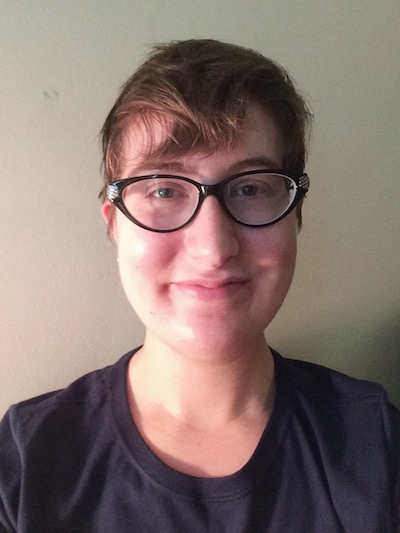For years, survivor Rachael W. didn’t think recovery was possible.
“ I had flashbacks where I was in contact with my abuser to appease him. I would always cry myself to sleep, and I was doing poorly in school,” Rachael said, speaking about the aftermath of an abusive relationship Rachael endured as a teen.
I had flashbacks where I was in contact with my abuser to appease him. I would always cry myself to sleep, and I was doing poorly in school,” Rachael said, speaking about the aftermath of an abusive relationship Rachael endured as a teen.
The relationship started off well, noted Rachael. “He seemed very kind and enthralled by me, but after the honeymoon period, he spent most of his time grooming me for abuse. ” It wasn’t long before his micro-aggressions toward the then-16-year-old Rachael erupted into full-blown emotional, physical and sexual abuse. Rachael’s partner started to make threats, lied, cheated and used coercion. “When he raped me,” Rachael said, “he was so brutal, yet he remained inhumanely detached.”
Rachael is not alone. Nearly 1.5 million high school students nationwide experience physical abuse from a dating partner in a single year, according to research compiled by LoveIsRespect.com. One in three teens suffers from abuse from an intimate partner, with one-quarter of high-school girls becoming victims of physical or sexual abuse.
Rachael’s journey toward healing took time. As a result of the trauma, Rachael suffered from PTSD, engaged in self-harm and contemplated suicide. To make matters more difficult, Rachael also struggled with unsupportive friends who did not believe what had happened during the relationship. Finally, at the age of 20, Rachael opened up to their* parents after some self-convincing. “The anger and depression inside of me felt like a poison,” Rachael said. “It took my friends and my enjoyment of life away. I knew I had to embrace my survivor status and enjoy some catharsis of my own.”
Rachael found many ways to work through the trauma. Therapy, reading the stories of other survivors, writing poetry, exercising and making self-care crafts are some of the ways Rachael coped. “Even when I felt like I did not truly love myself,” Rachael said, “I treated myself as if I did.”
Rachael believes that to help prevent teen dating violence, teens need to receive comprehensive education on “the spectrum of abuse, the warning signs and how to engage in healthy intimate communication.” Today, Rachael is a victim’s advocate, has a certificate in trauma-focused cognitive-behavioral therapy, and is also enrolled in a master’s degree program studying mental health counseling.
Rachael advises those in abusive relationships to ask for help when it is safe, and realize, “You can get away from your abuser and overcome.” To those who are struggling on their way to recovery, Rachael offers this piece of advice: “You will learn how beautiful and strong you are. You can learn how to use yourself as a tool help others. Perpetrators choose victims. You are never at fault for those actions. But only you can control your decisions. You can choose recovery.”
*Rachael’s preferred pronoun is the singular “they.”
Find more information about dating and domestic violence here, and at LoveIsRespect.org.
If you or someone you know has been affected by sexual violence, it’s not your fault. You are not alone. Help is available 24/7 through the National Sexual Assault Hotline: 800-656-HOPE and online.rainn.org.